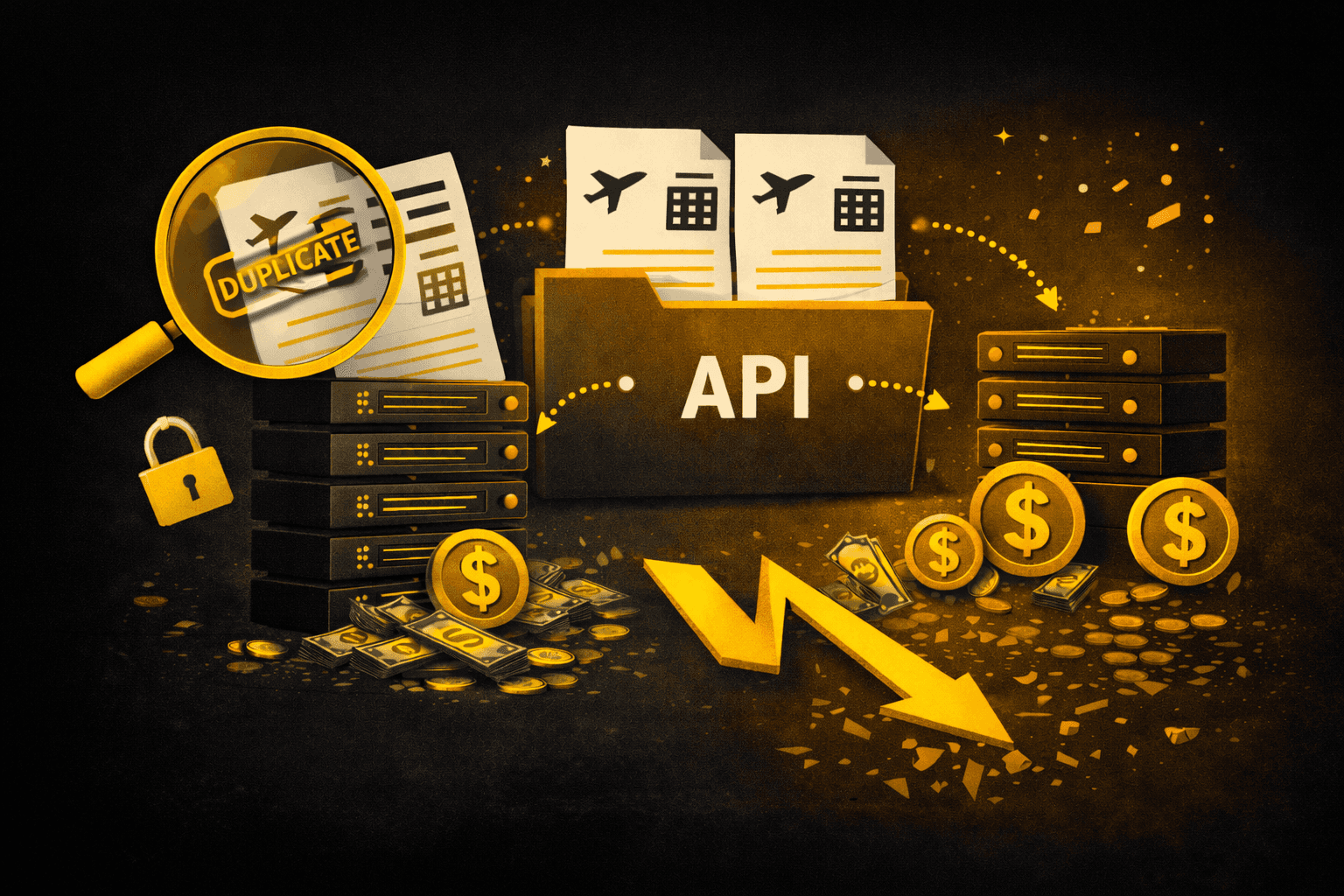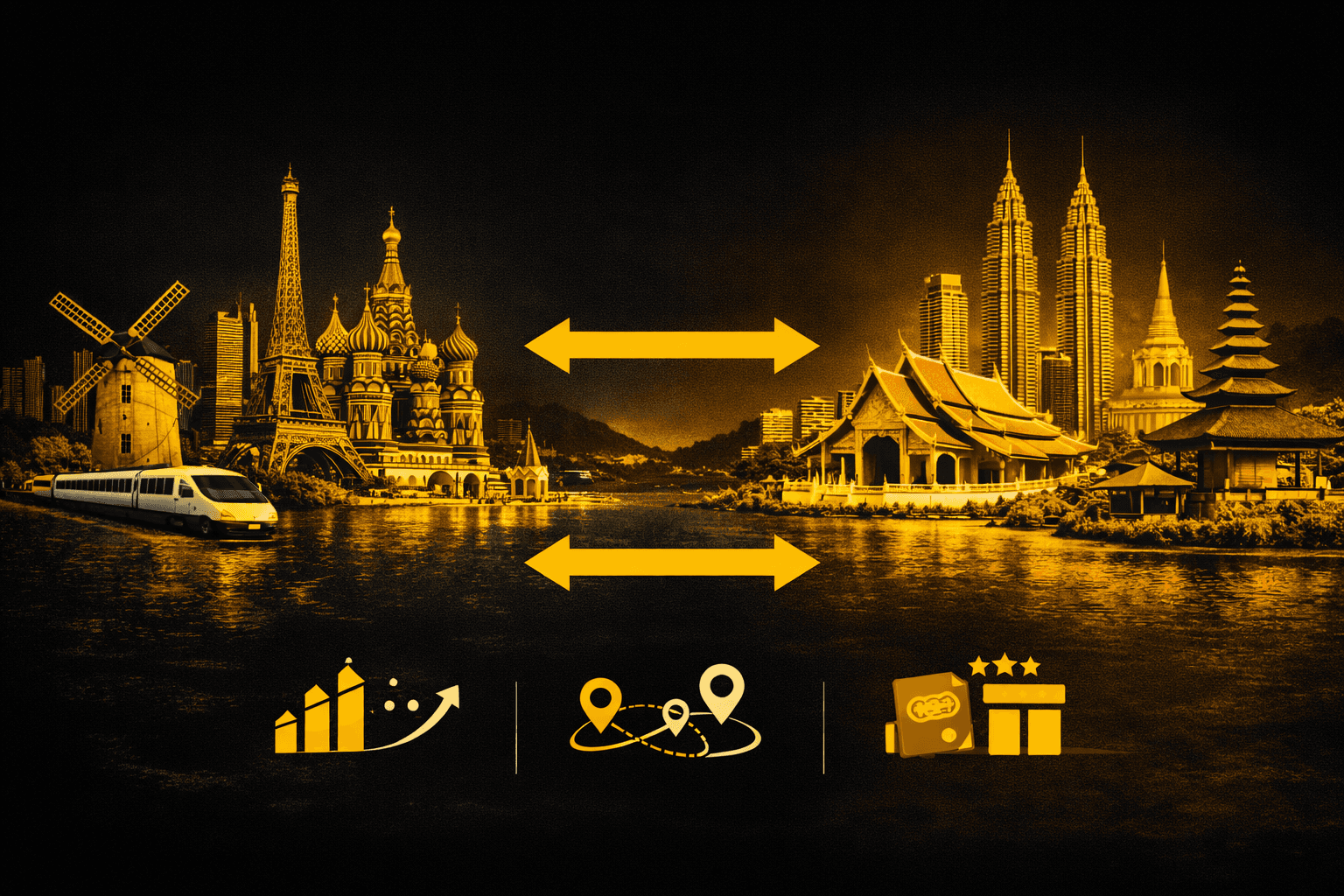Beyond Sports: How Events Are Creating a New $10 Billion Tourism Economy
When Taylor Swift's Eras Tour generated an estimated $5 billion in consumer spending in the United States alone, it became clear that event-driven tourism had evolved far beyond traditional sports competitions. Today, music festivals, cultural celebrations, and even natural phenomena are creating economic impacts that rival—and sometimes surpass—major sporting events. For hotels and travel businesses, this represents a massive opportunity that's reshaping revenue strategies worldwide.
The New Economics of Event Tourism
The numbers tell a compelling story: The global music tourism market alone is projected to reach $15.2 billion by 2033, growing at 8.9% annually. But that's just one piece of a much larger puzzle. When you factor in cultural festivals, food events, and experiential gatherings, we're looking at an event tourism economy that easily exceeds $10 billion in direct impact—with ripple effects multiplying that figure several times over.
Consider these staggering statistics:
The Eras Tour is projected to generate close to $5 billion in consumer spending in the U.S. alone
Music festivals like Coachella can generate upwards of $700 million in economic impact for host regions
Festival attendees typically spend $1,300-$1,500 on accommodation, dining, and local experiences
For every $100 spent on live performances, approximately $300 is generated in ancillary local spending
Beyond the Stadium: The Rise of Cultural Tourism
Music Tourism: The New Heavyweight
Music tourism has emerged as the most powerful non-sports event driver. In 2024, over 800 music festivals occurred annually in the United States alone, with 54% of American adults having attended at least one festival. The impact extends far beyond ticket sales:
Direct Economic Benefits:
Average festival-goer contributes $1,300 to local economies
Pittsburgh saw hotel occupancy reach 95% during Swift concerts, with rates jumping 106% to $309/night
Los Angeles generated 3,300 new jobs from Swift's six-night stop
New Orleans experienced $200 million in economic impact from concert weekends
The "Swift Effect" Model: What made the Eras Tour particularly instructive for the hospitality industry was its demonstration of sustained economic impact. Cities experienced:
80-90% of concert attendees coming from outside the area
Extended stays averaging 4-7 days
Spillover effects lasting weeks after events
Supply chain impacts creating shortages (even friendship bracelet materials!)
Cultural Festivals: Heritage Meets Revenue
Cultural and heritage festivals represent another booming segment. From Edinburgh's Festival Fringe generating £200 million annually to local Renaissance festivals driving rural tourism, these events create unique value propositions:
Edinburgh Festival: £200 million annual economic impact
Cannes Film Festival: Transforms the French Riviera's hospitality landscape
Local Cultural Events: Generate 10-15% increases in off-season tourism
These festivals succeed by offering what sports events cannot: deep cultural immersion, educational experiences, and multi-generational appeal.
The Rise of Experience-Driven Events
Modern travelers increasingly seek transformative experiences over passive entertainment. This has given rise to:
Wellness Festivals
The global wellness tourism market reached $651 billion
Wellness-focused events see 90% higher bookings than traditional festivals
Guests stay an average of 7 days longer
Food & Wine Tourism
Culinary festivals drive high-value tourism
Attendees typically spend 40% more than average tourists
Create year-round destination appeal
Natural Phenomena Tourism
Eclipse tourism created economic booms across viewing paths
Northern Lights tourism drives winter bookings in traditionally slow seasons
Climate events becoming scheduled tourism drivers
Strategic Opportunities for Hotels and Travel Businesses
1. Dynamic Event Calendaring
Smart properties are building comprehensive event databases that go beyond major festivals:
Track local music venues and touring schedules
Monitor cultural calendar for ethnic celebrations
Follow food and wine event circuits
Watch for astronomical events years in advance
2. Package Development Strategies
Event tourists want convenience and experiences:
Festival Packages: Include late checkout, secure storage, recovery amenities
Cultural Immersion: Partner with local artisans, offer workshops
VIP Access: Leverage relationships for exclusive experiences
Extended Stay Incentives: Capture pre/post event nights
3. Infrastructure Adaptation
Properties seeing success have invested in:
Flexible event spaces for pre/post gatherings
Enhanced connectivity for social sharing
Secure storage for costumes/equipment
Shuttle services to venue locations
4. Revenue Management Evolution
Event-driven pricing requires sophistication:
Track announcement dates, not just event dates
Monitor social media buzz for demand indicators
Implement minimum stay requirements strategically
Create rate fences that capture true willingness to pay
The Multiplier Effect: Understanding Total Impact
The economic impact of events extends far beyond direct spending. Research shows:
Direct Impact: Ticket sales, accommodation, dining
Indirect Impact: Supply chain benefits, B2B services
Induced Impact: Employee spending, long-term infrastructure investment
For example, when a music festival brings 50,000 attendees:
Hotels see $10+ million in direct revenue
Restaurants experience 200-300% sales increases
Local employment temporarily grows by 15-20%
Tax revenues can fund year-round community improvements
Challenges and Solutions
Managing Capacity
Challenge: Events can overwhelm infrastructure Solution: Develop overflow partnerships, implement yield management, create satellite experiences
Sustainability Concerns
Challenge: Environmental impact of mass gatherings Solution: Partner with eco-conscious events, implement green practices, market to sustainability-minded attendees
Community Relations
Challenge: Local resident disruption Solution: Create community benefit programs, hire locally, support year-round initiatives
Future Trends Shaping Event Tourism
Technology Integration
Virtual reality previews of events
AI-powered personalization for attendees
Blockchain ticketing reducing fraud
Social media amplification strategies
Emerging Event Categories
Esports Tournaments: Drawing massive young audiences
Immersive Theater: Multi-day experiential productions
Wellness Retreats: Combining events with transformation
Educational Tourism: TED-style events going local
Geographic Expansion
Secondary cities leveraging events for visibility
Rural areas creating signature festivals
International circuit development
Cross-border event partnerships
Action Plan for Hotels
Immediate Steps (30 days)
Audit local event calendar for next 18 months
Analyze past event performance data
Identify partnership opportunities
Create basic event packages
Short-term Goals (90 days)
Develop dynamic pricing strategy
Build relationships with event organizers
Train staff on event guest needs
Launch targeted marketing campaigns
Long-term Vision (12+ months)
Invest in infrastructure improvements
Create signature hotel events
Develop exclusive partnerships
Build year-round event strategy
The Bottom Line
Event-driven tourism has evolved from a niche opportunity to a fundamental pillar of hospitality revenue strategy. With non-sports events generating impacts that rival traditional sporting competitions—and often with more predictable patterns and loyal audiences—hotels that master this market will see significant competitive advantages.
The $10 billion figure likely understates the true opportunity. When you consider the full ecosystem of music festivals, cultural celebrations, wellness gatherings, and experiential events, plus their multiplier effects, we're looking at a market that could reshape how hotels think about demand generation.
Success requires moving beyond passive accommodation to active participation in the event economy. Properties that view themselves as experience enablers rather than just room providers will capture disproportionate value from this booming market.
As one hotel executive noted after Swift's tour impact: "We used to think the Super Bowl was our biggest opportunity. Now we track tour announcements like earnings reports."
The event tourism revolution is here. The only question is whether your property will be a spectator or a participant




